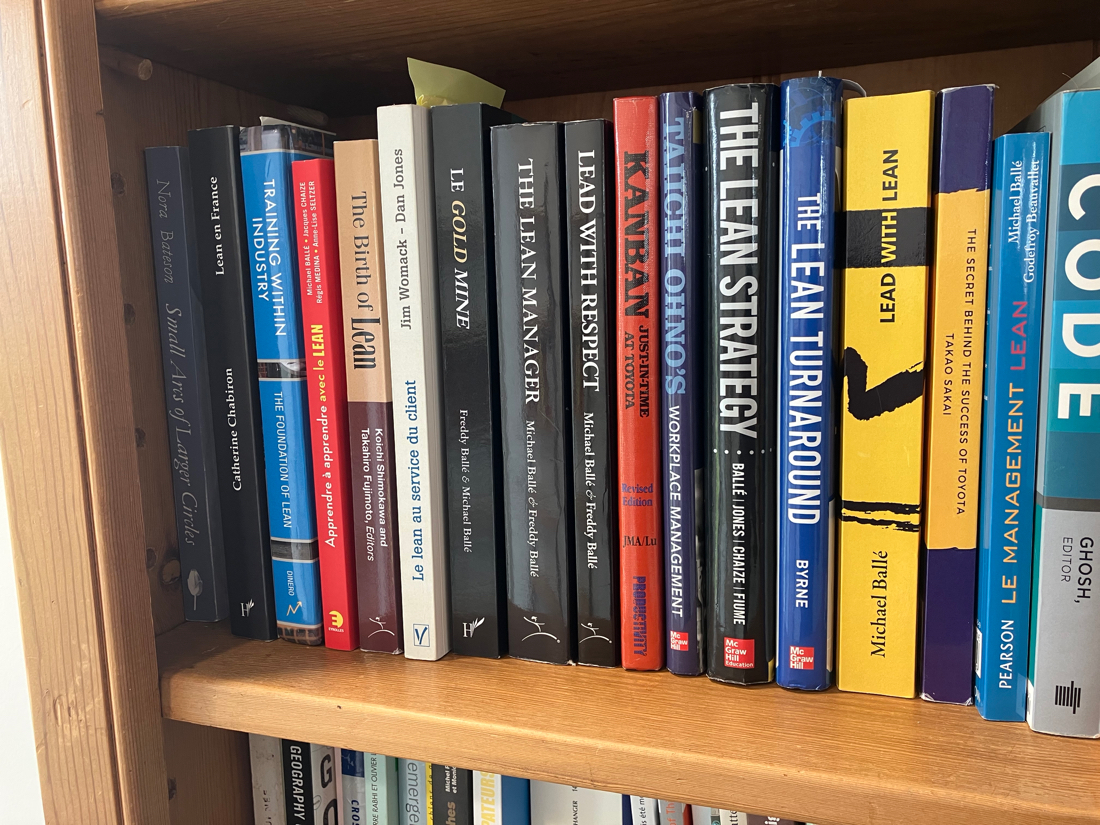X — You seem keen on reading books about Lean. Don’t you feel it’s time to reach out to the next thing coming up?
Me — And find out it was a fad all along? No thank you.
X — But you were doing PHP back in the PHP3 era : surely you felt it was the next right thing back then… What’s different this time?
Me — I was young then : PHP (over ASP and Flash) was one of those things that gets decided by your date of birth. Most of the people I know who bought into Ruby were born in the 1980’s. I was born three years too early for that. And the Javascript cohort is late 1990’s and early 00’s.
X — So how is Lean different?
Me — Simple : you can read old books and they are still relevant. There’s so much wisdom in them I have to re-read them after each improvement I make along my own Lean journey and understanding.

X — But the world of 1950’s Japanese engineers is a very different one from the current business markets dominated by financial imperatives.
Me — I couldn’t agree more: this stranglehold is one of the reason I left London in 1999. Consulting and financial services were the main career path for young mathematicians like me. And now more than ever I have a feeling it’s the path we have to leave in earnest.
X — And you feel a fifty year old strategy will help you on whatever new path you envision?
Me — Call me an optimist but I’m sure we need thinking people to overcome the next crisis, and the following one and all the ones after those. Lean is learning framework, it’s been tested quite a few times and still inspires neophytes and old-timers to explore new ways of doing things: I am convinced it still has a lot to teach us. Maybe you’d like to come to the Lean Summit in Paris in June 2022 : the event is nearly sold-out. A testimony to its enduring pull.

